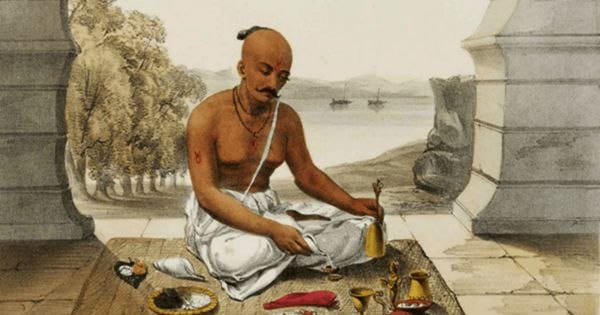The Brahmanic tradition of pre-colonial Indian political thought is deeply rooted in the ancient texts and philosophical doctrines that have significantly influenced the governance, social structure, and ethical frameworks of Indian society.

This tradition encompasses a range of ideas about kingship, law, duty, and statecraft, as articulated in key texts such as the Vedas, Dharmashastras, Arthashastra, and epics like the Mahabharata and Ramayana.
Key Aspects of Brahmanic Political Thought
1. Concept of Dharma
- Dharma as Social and Cosmic Order: Central to Brahmanic political thought is the concept of dharma, which refers to the moral and ethical duties that sustain social and cosmic order. Dharma encompasses a broad range of duties and responsibilities, including those specific to one’s caste (varna) and stage of life (ashrama).
- Raja Dharma: The dharma of kings, or raja dharma, outlines the responsibilities and ethical conduct expected of rulers. It emphasizes the king’s duty to uphold justice, protect his subjects, and maintain order.
2. Role of the King
- Divine Right and Responsibility: Kings were often seen as divinely ordained and were expected to rule in accordance with dharma. The king’s legitimacy was derived from his adherence to dharma and his ability to ensure the welfare of his subjects.
- Kingly Duties: Texts like the Mahabharata and Ramayana detail the ideal qualities of a king, including righteousness, bravery, wisdom, and compassion. The king was expected to be a protector, lawgiver, and upholder of justice.
3. Law and Justice
- Manu Smriti and Dharmashastras: The Manu Smriti (Laws of Manu) and other Dharmashastras provide extensive guidelines on law, social conduct, and the administration of justice. These texts codify various aspects of civil, criminal, and family law, reflecting a hierarchical social order.
- Punishment and Mercy: The administration of justice involved a balance between strict enforcement of laws and the king’s discretion to show mercy. Punishments were often prescribed according to the varna and status of the individual.
4. Statecraft and Administration
- Arthashastra: Attributed to Kautilya (Chanakya), the Arthashastra is a seminal text on statecraft, politics, and economics. It offers pragmatic advice on governance, including diplomacy, warfare, taxation, and espionage.
- Saptanga Theory: The Arthashastra outlines the saptanga (seven limbs) theory of the state, which includes the king, ministers, territory, fortified cities, treasury, army, and allies. This holistic view emphasizes the interconnectedness of various elements of governance.
5. Ethical and Moral Governance
- Moral Leadership: Brahmanic political thought emphasizes the moral and ethical conduct of rulers. The king was expected to be a role model, embodying virtues such as truthfulness, generosity, and self-discipline.
- Consultative Governance: Kings were advised to consult with Brahmins, ministers, and advisors to ensure wise and just decision-making. This reflects a recognition of the importance of counsel and collective wisdom in governance.
6. Integration with Religion
- Sacred Kingship: The intertwining of religion and politics is evident in the concept of sacred kingship, where the king performed religious duties and rituals to legitimize his rule and ensure divine favor.
- Temple and State: Temples played a significant role in the socio-political life of pre-colonial India, serving not only as religious centers but also as institutions of economic and social organization.
Examples from Texts and Epics
- Mahabharata: The Mahabharata provides rich narratives on the duties and dilemmas of kingship through characters like Yudhishthira and Krishna. It explores themes of justice, dharma, and the complexities of moral governance.
- Ramayana: The Ramayana portrays the ideal king in the form of Rama, who embodies righteousness, duty, and devotion to dharma, even in the face of personal hardship.
Influence and Legacy
The Brahmanic tradition of political thought has had a lasting impact on Indian governance and societal norms. It provided a framework for rulers to aspire to ethical governance and for society to maintain order and justice. The legacy of these ideas can be seen in the continued reverence for texts like the Manusmriti and Arthashastra and in the influence of these principles on later political and legal developments in India.
In summary, the Brahmanic tradition of pre-colonial Indian political thought integrates religious, ethical, and practical dimensions of governance, emphasizing the importance of dharma, righteous kingship, and consultative statecraft. This tradition has profoundly shaped the political and social structures of ancient and medieval India, leaving a rich legacy for subsequent generations.






